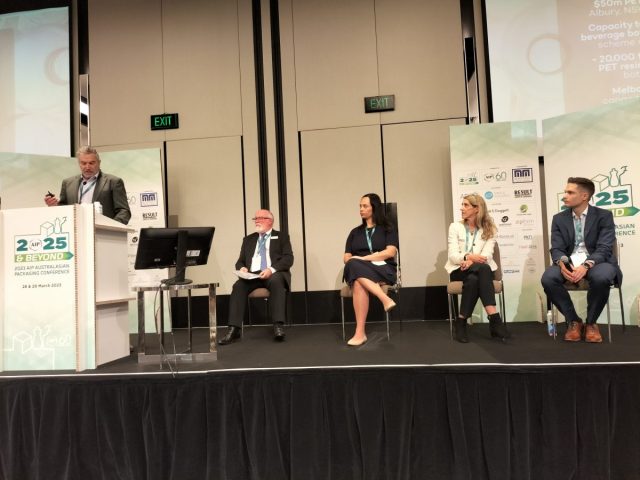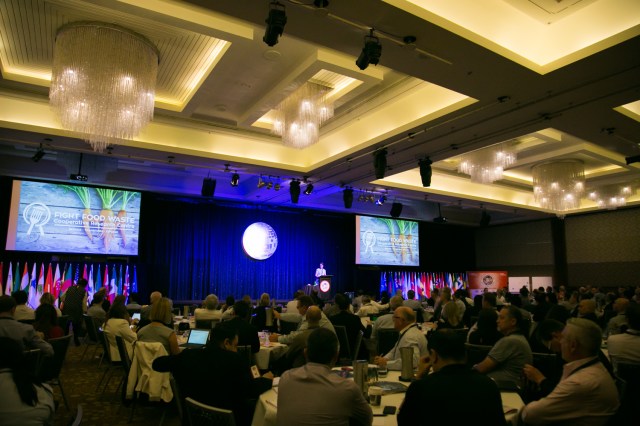
By Conal O’Neill
Circular economy and design was the topic for a panel discussion at the recent 2023 AIP Conference moderated by Planet Ark head of circular economy development Nicole Garofano. The panel featured input from Product Stewardship Centre of Excellence director John Gertsakis, Planet Ark chief sustainability advisor Paul Klymenko and Nextek Asia Pacific project manager Kelvin Davies.
Garofano encouraged the audience to place a “higher value on materials” and to think of circular economies as “far more than recycling”. The “ladder of circularity”, Garofano said placed a relatively low importance on recycling, and the highest value on refusal of unnecessary packaging or non-essential products.
The panel also discussed the importance of product stewardship as a tool for implementing circular economies, with Klymenko commenting that it was in producers’ best interests to “take the leadership” in the area and avoid inevitable “mandatory systems” that may be less favourable to business interests.
Garofano added that making progress was dependent on “brand owners coming together”, saying “together we can do this better… and it doesn’t have to start with a formal stewardship scheme implemented by government”.
Gertsakis agreed, adding that “enthusiastic collaboration rather than reluctant participation” and having “senior people involved from the outset” was important to expediting decision making processes around implementing stewardship schemes and delivering “genuine brand responsibility”.
Speaking to the reluctance of some brand owners to embrace circular economic principles, Garofano also said “people think that the circular economy… is another thing we’ve got to add on to (sustainability targets), but it’s actually a really important tool to achieve (these goals)”.
Garofano and Klymenko also encouraged brand owners to utilise the Australian Circular Economy Hub, a Planet Ark initiative, as a “national reference platform for circular economy, knowledge and collaboration in Australia”.
As with many of the speakers at the conference the panel also drew attention to the overarching issue of food waste, with Klymenko commenting that “packaging and plastics is quite a small part of the waste supply chain. One of the biggest contributions anyone… can make is [to discuss and address] food waste… food has so much embodied carbon and energy in it and then for want of planning or forethought, it gets wasted”.
Davies gave some perspective on the technical challenges of developing packaging from recycled polypropylene as well as consumer perceptions. “When you put them past consumers, they can’t pick the difference,” he said.


